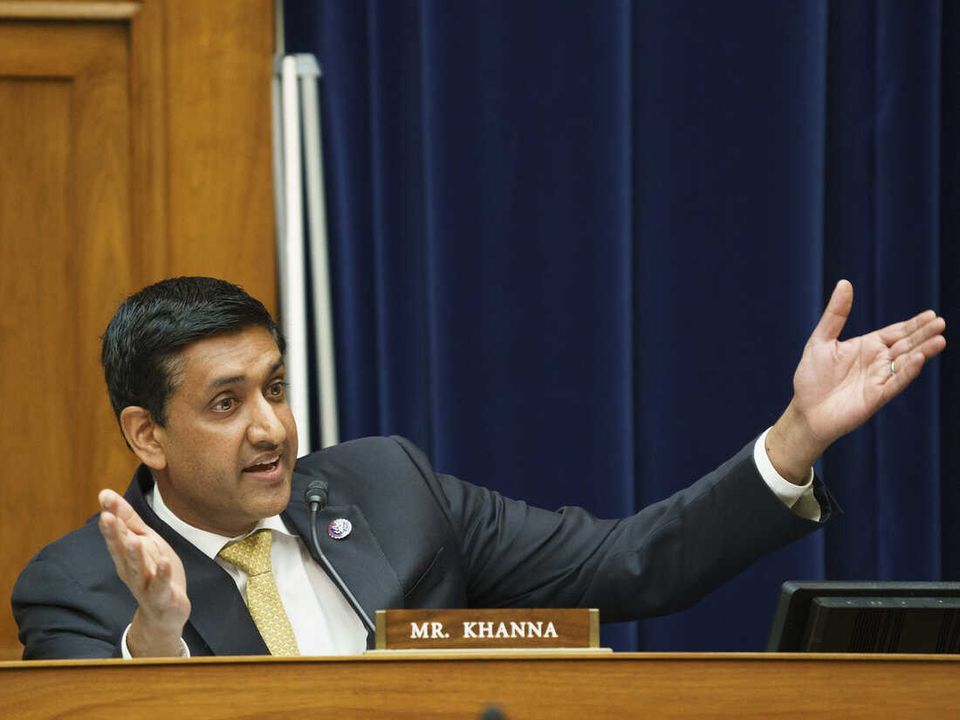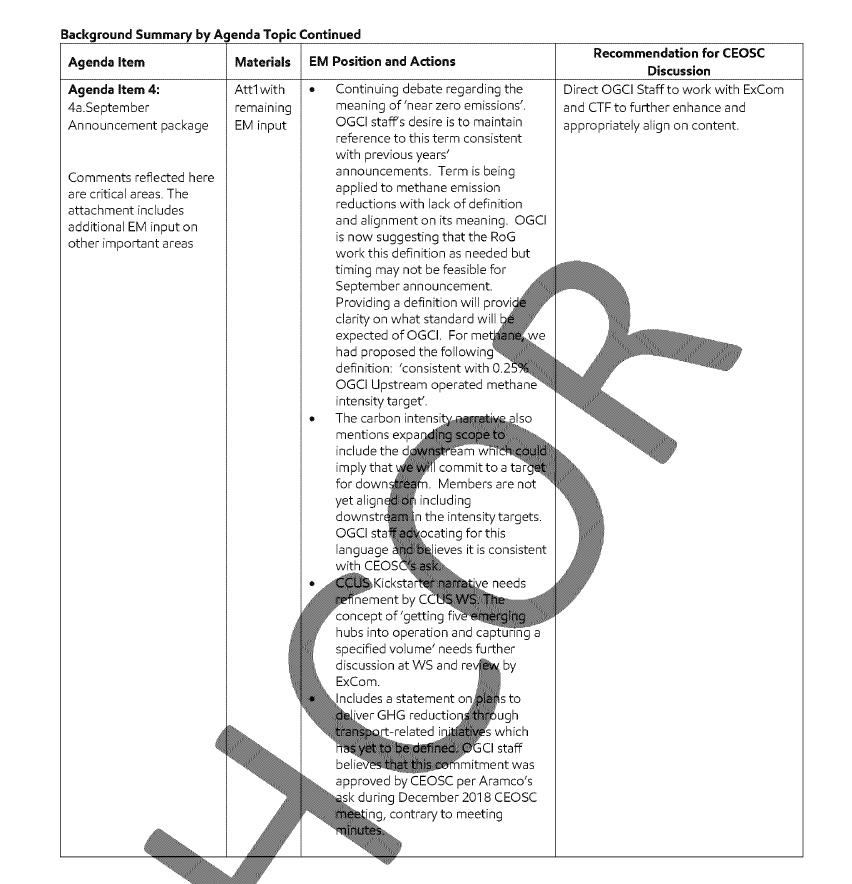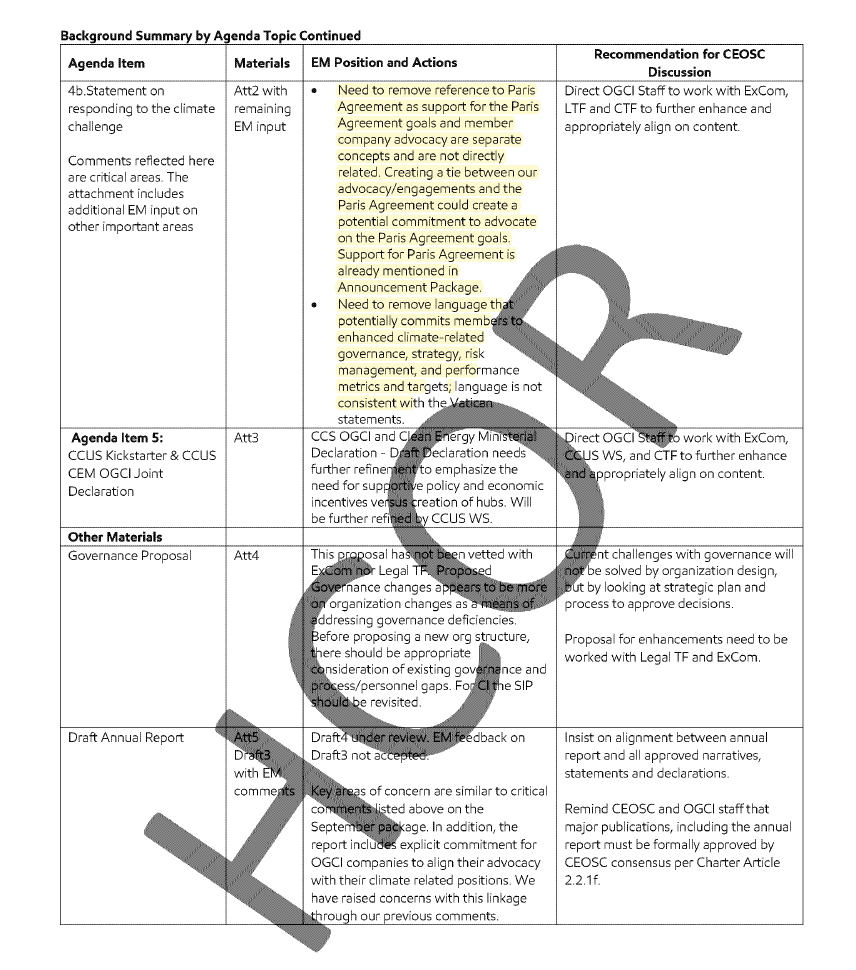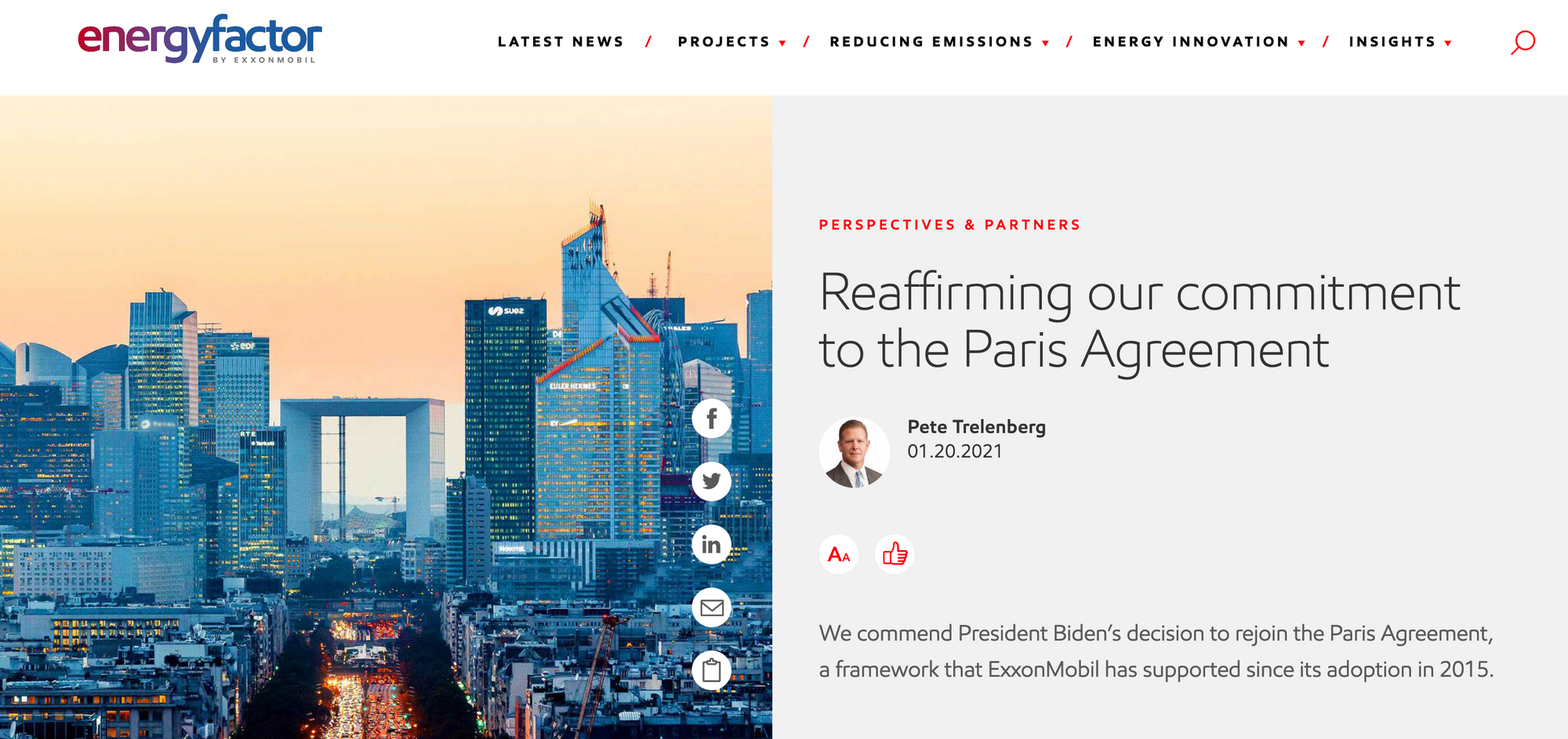Drilled Down: Three Congressional Hearings on Climate Disinfo Bring New Industry Documents to Light

PR firms are paid to engage in unethical tactics that intimidate and silence Americans who are exercising their rights to support actions that combat climate change wealthy and powerful corporate entities are dragging citizens and public interest opponents through meritless. But protracted and extremely costly litigation to expose anyone who dares to stand up to them to financial and personal ruin in its work to silence its critics. — Rep Katie Porter
The fossil fuel industry is also pushing for the passage of anti protest laws dressed up as critical infrastructure protection statutes documents don't lie. While BP touted carbon capture is key to its transition. To cleaner fuel the, the company privately hope this approach would quote, enable the full use of fossil fuels across the energy transition and beyond. — Rep Jamie Raskin
We also found that Exxon spent nearly the $70 million to advertise its research in algae based biofuels, but company documents reveal that technology is quote, still decades away from the scale we need. —Rep Carolyn Maloney
This week was a big one for climate hearings! Rep Katie Porter and her Natural Resources Subcommittee on Oversight and Investigations has been looking into PR firms and their role in warping the public discourse on climate. She had a hearing on that subject this week. Rep Jamie Raskin and his Oversight Subcommittee on Civil Rights and Liberties focused the third of his free speech hearings on attacks on environmentalists last week and reps, Carolyn Maloney, and Ro Khanna focused the third of their climate disinfo hearings this past week on climate justice and shared some explosive new documents that their investigation has uncovered.
The House Oversight Committee is still waiting on oil companies to comply with their subpoenas. But in the meantime, they have received an initial batch of documents and some of them are pretty revealing. Despite its constant advertising of algae biofuels, for example, apparently Exxon Mobil invests a tiny fraction in that program compared to what it invests in its fossil fuel portfolio.
And internally company officials talk about the technology being decades away at best. I remember covering algae-based biofuels back in the early 2000s and scientists were saying that then too, 20 years ago.

The most damning document where Exxon was concerned though, was a draft policy from the Oil and Gas Climate Initiative (OGCI). In it, the oil major asked OGCI to remove reference to the Paris Agreement, noting that "support for the Paris Agreement goals and member company advocacy are separate concepts and not directly related. Creating a tie between our advocacy and engagements and the Paris Agreement could create a potential commitment to advocate on the Paris Agreement goals."


Publicly of course, Exxon Mobil has proclaimed its commitment to the Paris agreement over and over again. It claims to have supported it since 2015. "We obtained an eternal memo prepared for the CEO of Exxon Darren woods in 2019. And this memo shows how Exxon and Chevron worked behind the scenes to drastically reduce and weaken climate pledges made by an industry group called the Oil and Gas Climate Initiative. The memo shows the two companies wanted to remove any commitment for oil companies to "align their advocacy with their climate related positions."

In both the House Oversight Committee hearing and in Porter's hearing on the use of PR to spin climate disinformation, Republicans and their witnesses made the same arguments over and over: It's a First Amendment violation to come after climate disinformation. Opinions you don't like aren't disinformation! Rep Porter and witness PR whistleblower Christine Arena debunked the idea that the tactics being used to spread disinformation fall into the same bucket as the sort of communication that's covered by the First Amendment.
Rep Porter: Based on your experience, do you know what the standard practices are in the public relations industry?
Christine Arena: I certainly do.
Rep Porter: According to your written testimony, you wrote, "There is nothing standard ethical about the practices of the PR firms we are discussing today." What makes these practices different from the standard work PR firms perform for clients?
Christine Arena: You know, hiring fake protesters is unethical in multiple ways. First they're fake protestors, right? There's the simulation of community support or opposition that isn't really necessarily real. Secondly, it is not disclosed who is paying for and funding those paid protestors. And thirdly, those paid protestors that I wrote about were actually engaging in what I believe were harassment behaviors, that is stalking Colorado Rising members as they were trying to make their voices heard. I do not believe that there is a single trade association in my industry that would consider the hiring of fake protesters to be an ethical marketing practice. And I certainly don't consider that standard.
Congresswoman Lori Trahan from Massachusetts also tried to make this basic point. "I think one thing that's important to note is that we can have free speech and stop the spread of disinformation," she said. "If we stop with the grandstanding and just get to sensible policy making."
That didn't stop a whole lot of whataboutism on free speech. "This committee should be wary of any attempt to stifle the exercise of free speech, regardless of whether or not the majority agrees with the viewpoint," Republican representative Blake Moore from Utah said in the PR hearing.
Republicans' favorite reformed environmentalist, Michael Shellenberger made similar comments as the minority witness in the climate disinfo hearing. "As for misinformation about climate change and energy, it is rife on all sides. And I question whether the demands for censorship by big tech firms are being made in good faith or are consistent with the rights protected by the First Amendment."
That reference to big tech firms was related to the Biden Administration's attempt to crack down on COVID misinformation on Facebook, which somehow got trotted out all throughout these hearings, despite it having nothing to do with climate, as proof that the administration is anti-free speech in general.
It's ironic that so many fossil fuel industry allies were so concerned about the free speech of corporations news hearings, while Rep Raskin in his hearing was digging into the industry's very real, very well funded and very effective efforts to quash the free speech of individuals.
The Subcommittee on Cvil Rights and Liberties was particularly focused on two key tactics: Strategic litigation against public participation or SLAPP suits and the proliferation of anti-protest laws or "critical infrastructure" laws, which place steep fines and penalties on protest. SLAPP suits are civil suits that are generally filed by companies against individuals or nonprofits that criticize or protest against them.
They can be extremely costly and time intensive to fight and thus have a chilling effect on civic action. If you listened to our season on the Chevron Ecuador case, the suit filed against attorney Steven Donziger was considered by most advocates to be a SLAPP suit. In the wake of the Standing Rock protest in 2016 and 2017 Energy Transfer Partners sued Greenpeace and several activists in a massive SLAPP suit, part of which is still ongoing. The anti-protest laws were a part of the industry backlash to Standing Rock aimed at cracking down on pipeline protests in particular. These are both really clear examples of entities with more power limiting the free speech rights of individuals with less power, a textbook example of First Amendment infringement. Unlike the case of a company not being able to lie to the public with impunity.
"My name is Deepa Padmanabha, and I am deputy general counsel for Greenpeace USA." Padmanabha testified at Raskin's hearing. Greenpeace has had experience dealing with both SLAPPs and anti protest bills. "SLAPPs and anti-protest bills are really two sides of the same coin," she says. "They are tactics used by the same corporate actors to quash dissent. We have two lawsuits hanging over our heads. One filed by Resolute Forest Products, another filed by Energy Transfer. The first lawsuit was filed in May of 2016, and that was by Resolute Forest Products, which is one of Canada's largest logging companies. And they sued us for $100 million alleging damages from a public campaign we had exposing the company's harmful business practices. And then in August of 2017, a very similar suit was filed by Energy Transfer, the company behind the Dakota Access pipeline. And this was for $300 million for allegedly orchestrating the resistance at Standing Rock. So these complaints were actually very similar. They had a similar template and they were actually filed by the same lawyers. And so the lawyers behind these suits had actually indicated that they were shopping this tactic around and it wouldn't be a surprise to see other corporations filing similar suits."
In fact, she says she's seen an uptick in slaps being filed against environmentalists in the years since Standing Rock. "So there has absolutely been an uptick in oil companies filing SLAPPs over the last few years," she says. "But I would say what's even more concerning is their attempt to create new, dangerous legal precedent through SLAPPs. As I mentioned before, in August of 2017, we had the Energy Transfer suit filed. What I didn't mention is that, although it was for $300 million, the company didn't stop there. Energy Transfer brought claims under the federal Racker Influence and Corrupt Organizations act or RICO. And as many know RICO was a law that was created to go after the mafia for organized crime. And what made RICO even more dangerous was that it allowed for the recovery of treble damages. So we were suddenly looking at it an almost $1 billion lawsuit. And Energy Transfer was alleging that our advocacy work to uplift indigenous voices at Standing Rock constituted, organized crime."
Even though ultimately Energy Transfer's case was thrown out of federal court, the company refiled an almost identical complaint in North Dakota state court, which notably lacks an anti-SLAPP statute.
"And it also named ind additional individual defendants," Padmanabha says. "And this is the case we continue to fight today, five years later after the original federal suit was filed."
Greenpeace has also had activists arrested under anti protest laws. "Greenpeace USA activists were arrested in 2019 under Texas's felony critical infrastructure law for unfurling banners under bridge, which temporarily blocked shipping and brought attention to the connection between the oil industry and climate change. And while we were ultimately not charged under the law, you can of course see how both tactics are used by corporations to silence dissent."
Currently 17 different states have these laws on the books. And according to Emma Fisher, one of the authors of a new report on these laws from the nonprofit climate cabinet, they've had bipartisan support in some states. "One thing that's concerning is of course, as expected, we've seen these critical infrastructure laws pass primarily in Republican controlled states, but not without some democratic support," she says. "And so I think it's important to recognize that not all Democrats are holding the line on this issue either. And we've actually seen a critical infrastructure bill introduced in Illinois, which is a democratic trifecta state. We've seen other types of preemption laws introduced by Democrats in states like New Jersey. And so I think that's something to keep an eye out for. That, you know, fossil fuel interests they're gonna work with anyone who will work with them. And they're especially working in creative ways to get Democrats and Labor groups on board."
There's a similar hodgepodge of laws around SLAPP suits. Thirty-one states have antis SLAPP statutes on the books, which enable the easy dismissal of meritless suits. But it's easy enough for corporations to venue shop and find a state without one. Which is why Rep Raskin introduced new federal anti SLAPP legislation on the heels of this week's hearing. It will make its way through all of the usual painful political gears, but it has a decent shot at passing. Support for anti-SLAPP statutes has tended to be bipartisan in part because companies have figured out a way to use them too. Earlier this year, Exxon, for example, invoked Massachusetts' anti-SLAPP statute, calling attorney general Maura Healey's fraud suit against the company a SLAPP.
The argument didn't work. That case is now moving into discovery. And when it goes to trial, Exxon will make the argument that everything it's ever said about climate change is petitioning activity or political speech and thus protected by the First Amendment.
An audio version of this story is also available wherever you get your podcasts.
Upgrade to a paid subscription via the button below for access to our next post on the hearings, which will look at anti-climate messaging consistency across all three (complete with chart!)





